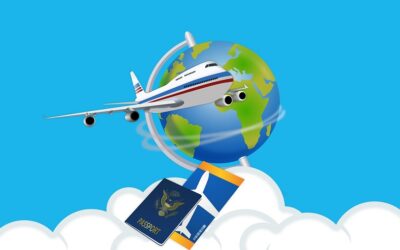Codesharing – Do you really know what airline you’ll be flying with?

Travellers often wonder why they are flown with a completely different airline to the one they actually booked. Even more so, if they are not happy with the quality standards of the carrier they didn’t know they were going to fly with. The question then soon arises as to the legality of such practices.
This common phenomenon actually has a name; Codeshare
A codeshare agreement (aka codeshare), is an aviation business contract where two or more airlines share the same flight. Each of the involved airlines operates the flight under its own flight number and airline designator.
Such methods are often implemented within economically affiliated airline alliances such as Star Alliance, Oneworld Alliance or Sky Team and enable the airlines to offer flights that they don’t normally operate. This results in the airline being able to offer a much broader network of flight destinations and also an improved utilization of seating capacity.
The German airline Lufthansa, a member of the Star Alliance group, shares its scheduled flights not only with United Airlines, Air Canada, Swiss Air, ANA and Singapore Airlines but also the not quite as well-known airlines Adria Airways and Air India. One further example is the carrier Air France which is a member of Sky Team.
You might find that after having booked an Air France flight, you are actually flown to your destination by other alliance partners such as the Russian Aeroflot or the Czech CSA. British Airways flights might be operated by the Hungarian carrier Malev or Royal Jordanian as they are all members of the Oneworld alliance. Codesharing is not only used by the larger airlines, low-budget carriers such as TUIfly also benefit from shared flights.
This practice can often lead to the dissatisfaction of passengers, particularly of those who actually chose to book their flight with a specific airline because they feel more comfortable with the quality and safety standards. The disappointed is even greater when they only find out at the check-in desk or boarding gate that they have to board an aircraft from a completely different airline. Despite numerous complaints, passengers are actually powerless as codesharing is apparently perfectly legal.
In accordance with The Warsaw Convention (originally signed in 1929), the only thing the airline is obliged to is the carriage of passengers, irrelevant of the standards of the aircraft facilities, crew or general quality of carriage.
Consequently, the question arises as to how passengers can find out with which airline they will actually be flying.
Here are a few telltale signs that the flight might be operated by a different airline:
You should always ask about the airline when booking a flight or at least read your travel documents thoroughly. In the past, it was rumoured that extremely long flight numbers of 4 or more digits are a reliable enough indication that the flight is operated by a partner airline. Unfortunately, that is not entirely true.
Luckily, nowadays your ticket or booking confirmation must state which airline will be operating the flight. You might have to have a very close look, but you should be able to find that information. For international flights, you will often find the wording: “operated by…“
A further indicator of a codeshare flight is the designation code. Double designation e.g. JPLH stands for a jointly operated flight with Adria Airways (JP) and Lufthansa (LH). Flights between countries foreign to the airline are also more often than not operated by partner airlines i.e. you might have booked with British Airways but your flight between Paris and Munich would most probably be operated by a partner airline.
One more sign that your flight might be a codeshare flight is easier to spot if you’re booking a long-haul flight. When booking a longer flight you should be able to tell by unusual or unusually long stops and also from changes in the type of aircraft from one stretch of the journey to the next, whether or not it will be fully operated by the airline you originally booked with.
Such details can also be found when booking online. The information is there, it’s just a question of knowing where to find it and what to watch out for.
Sachin Suryawanshi
Digital Marketing Consultant
If your flight delays for more than 3 hours, or was cancelled, you may be eligible for compensation up to €600 based on EU 261 rule.
Check For FreeWe offer "No Win - No Fee" Services, so claiming is Risk-Free!
Flight Delay Rights
You’ve planned out this whole vacation for yourself when suddenly when you’re at the airport, you hear that your flight has been delayed! Urgh! The agony and the frustration! You have no idea what to do and just sip on your coffee with a...
EU Flight Delay Compensation Rights
Even if you are a seasoned traveler, there can be times when you have to experience flight delays or cancelations. Here is information on the rights of airline passengers if their holiday flight is delayed or canceled. Delayed flight...
Trying To Score Cheap Flight Tickets? It’s Not That Hard!
An integral part of any travel itinerary is booking flight tickets (you need to book a ticket before you can claim air customer rights with us ;-). Getting the best bargains can be a daunting task, but by applying a few simple techniques,...



